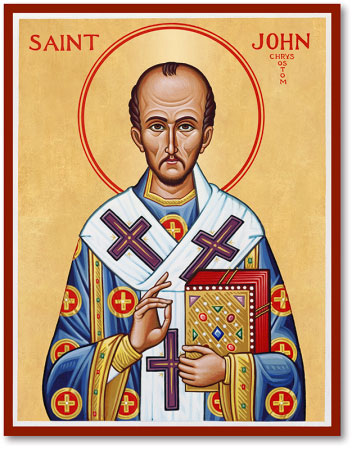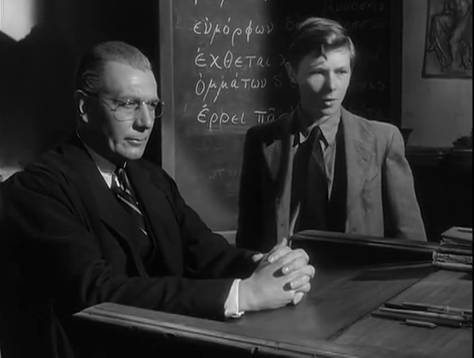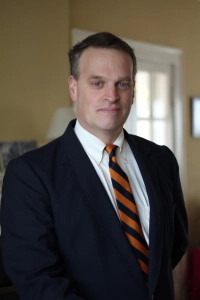In this last Sunday’s Gospel we hear,
You shall love the Lord, your God,
with all your heart,
with all your soul,
and with all your mind.
Now I think most people are familiar with the first two thirds of this injunction- we should love God with our whole heart and soul. The phrase ‘heart and soul’ is fairly common. We often hear of someone who “put his whole heart and soul” into some enterprise.

When we put our heart and soul into a project we devote our energy and enthusiasm to it. We commit ourselves to the success of the project ‘holding nothing back’. We are fully invested. We are “all in.” Think of a serious athlete preparing for a major competition. Think of the entrepreneur launching his first business.
Those who do something ‘halfheartedly’ by contrast are clearly not marked for success; the ‘halfhearted’ denotes a person who does something with a lukewarm effort, with tepid enthusiasm at best for seeing the work done- like an Algebra II student approaching another homework assignment!
And so Our Lord advises us that, should we wish to win an everlasting crown, we need to engage in the task whole heartedly!
But if we have already engaged our whole heart and soul in some enterprise, what more does the phrase ‘with the whole mind’ add? What could be lacking in the effort of one who has already invested his heart and soul?’
One church father, who apparently is not St. John Chrysostom, but whom we call “Pseudo Chrysostom” interpreted our Lord thus:
But to love God with the whole heart, is to have the heart inclined to the love of no one thing more than of God. To love God again with the whole soul is to have the mind stayed upon the truth, and to be firm in the faith…. He only loves God with his whole mind, whose intellect ministers to God, whose wisdom is employed about God, whose thoughts travail in the things of God…
I think Pseudo Chrysostom, whoever he is, has hit the nail on the head. The one who loves God with his whole mind is the one whose intellect ministers to God.

But how are we to do this? How do we develop minds that minister to God?
Well, I think the answer is clear, but rather than say it outright, it is probably better to “talk it up” a little. One should never just blurt out answers! And so we need to ask a few questions.
First, what does it mean to have a mind that ministers to God?
Central to the business of the mind is knowing. That is to say, that the mind’s main work is ‘to know.’ So I think it is safe to say that that the mind which is able to minister to God is the mind which is able to know God.
Now you might say,
Well that’s easy because every mind is able to know God!
That’s true, but only in the sense that every mind is able to do calculus. Or that every child can play the violin. In other words, there is ‘able’ and there is ABLE.
For example, everyone (who can read) is able to read St. Thomas Aquinas’ Summa Theologica. But in point of fact, the reason St. Thomas’ masterwork about the knowledge of God is so universally neglected is that the mere ability to read does not mean that everyone can read this work, that is, with any understanding.
Even though St. Thomas himself introduces this work saying,
we purpose in this book to treat of whatever belongs to the Christian religion, in such a way as may tend to the instruction of beginners
….. sadly the beginners he is speaking about happen to be those who have already completed a complete course of study in Grammar, Rhetoric, Logic, Geometry, Arithmetic, Astronomy and Music.

And after the student has completed his study of the seven liberal arts, St Thomas is assuming that his ‘beginners’ have also completed a thorough study of the central works of Aristotle.
And of course these beginners, who are ready to read the Summa Theologica, have more than a passing knowledge of Plato’s Dialogues (well…at least the most popular of them!)
…and a pretty decent working knowledge of the works of Saint Augustine. (e.g. Confessions, On Christian Doctrine, City of God, etc.)
Having the liberal arts, the works of Aristotle and Plato and Augustine under one’s belt, so to speak, really does give one an advantage for reading the Summa Theologica. But let’s not forget the study of Latin (and maybe even just a little Greek!). After all, how can one really attempt to study the Summa Theologica seriously without at least a passing knowledge of Latin.

Sure- it would be great to be able to read the Summa in Latin with facility. But I only mean that a student ought to be able to at least check this or that text in the original, simply for clarity about what Latin words are being used. Often the precise word used in translation may cause an impediment.
Furthermore, nobody can seriously read the Summa Theologica who has not at least cursorily read the Bible from cover to cover at least once. Scripture is the “soul” of Theology as the church has affirmed more than once.
Of course the ability to read and study all of these assumed a prior study in a student’s younger years of what we might call all the “good books.” These good books are the books that were pivotal in developing a student’s ability to read in the first place. The books that stocked his intellect with a rich and memorable storehouse of experience, stuffed his imagination with a plentiful resource of good and beautiful images, enlarged his vocabulary, developed his focus and extended his intellectual resources.

We will not even mention how a large experience of the fine arts disposes the mind of the student towards the knowledge of God. But St. Thomas is not excluding the ‘habit of beauty’ in his assumptions concerning the ‘beginner’ for whom he wrote his Summa.

So what does it mean when we are commanded to love God with all our minds?
It means that we need to engage in a lifetime of learning in which we study every aspect of God’s creation, every science, every art, every discipline so that we can discover the God who is the cause of all His manifold and wonderful works.
To love God with all our mind entails a lifetime application of our greatest resource, our intellect, in a tireless attempt to know the invisible things of God through the visible things of the natural world.
He only loves God with his whole mind…whose wisdom is employed about God, whose thoughts travail in the things of God…
As St Paul says,
For the invisible things of him, from the creation of the world, are clearly seen, being understood by the things that are made; his eternal power also, and divinity: so that they are inexcusable.

We certainly do not want to confront St. Paul one day and see him wagging his finger at us and saying, “You are inexcusable.”
Who are inexcusable?
Those are inexcusable who fail to live life ministering their minds to God. They are inexcusable who bend their mental and intellectual efforts towards ‘knowing’ this or that aspect of the natural world but somehow miss the “invisible things of Him” that “are clearly seen, being understood by the things that are made.”
Those also are inexcusable who have never respected the ultimate purpose of their minds but have only employed it for the sake of utility- that is, those who have refused to engage their mind in anything but the pragmatic.
To put it bluntly: When our Lord enunciates the greatest commandment, saying
you shall love the Lord, your God…and with all your mind
He might as well have said,
in order to love God with your whole mind, you need to know God. In order to know God you need to know the visible things of the world through which God is clearly seen. In order to know the visible world, you need to engage in a lifetime orderly pursuit of this knowledge…
To me it is obvious what this all means. It means that everyone should pursue a liberal education. Everyone should pursue a Catholic classical education to the extent that it is possible. Everyone should desire to educate one’s children with a Catholic liberal education or run the risk of meeting St. Paul one day who will say to those who do not follow this advice, “You are inexcusable.”

Sure, many of us might have been cheated out of a Catholic liberal education when we were young. But, thankfully, liberal education is never a project that becomes too late to undertake.

A classical liberal education has always been thought to be the education which is concerned with knowing the world around us for the sake of ultimately knowing God. That is to say, it has always been a tenet of liberal education that every field of knowledge, every art, every science, every discipline is ultimately ordered to the knowledge of God.
This simple truth is what St. Thomas Aquinas proposed when he taught that Sacred Doctrine is the’ Queen of the sciences.’ In his Summa Theologica he writes,
Other sciences are called the handmaidens of this one: “Wisdom sent her maids to invite to the tower” (Proverbs 9:3).

Theology, or Sacred Doctrine, has always been considered the ‘head’ or ultimate goal of the curriculum at a Catholic school, college, or university. Not that every student at such a school is meant to be a theologian formally speaking, but rather that every study, every intellectual pursuit, granting its usefulness and nobility considered by itself, is nonetheless something that finds its highest fulfilment in serving sacred doctrine and preparing the mind of man for the knowledge of God.
And so we have arrived at our thesis which is quite simply, it is only by a Catholic liberal education, or a Catholic classical education, that a person is able to render his whole mind to the service of God.






Thanks! Darn it!
Well elucidated Mark. Unfortunately many folks are so busy loving God with their whole mind and talking about it that they have no time to honor the second greatest commandment.